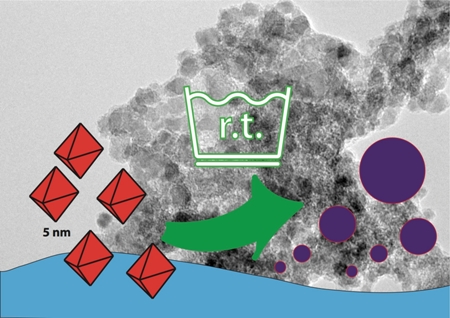A research project headed by scientists from the University of Warwick has discovered that nanodiamonds, which are nano-scale carbon pieces, can help remove crystallized fat from surfaces. The project aims at transforming the capability of washing powders to remove dirt in environmentally friendly low-temperature laundry cycles.
 Addition of nanodiamond to surfactants promotes removal of lipid from surfaces
Addition of nanodiamond to surfactants promotes removal of lipid from surfaces
These results will help consumers to handle an issue that makes them to wash their laundry at a temperature range of 60°C -90°C for over 80 times annually. At low temperatures, it is very difficult to remove certain dirt and fats even with advanced biological washing powders.
University of Warwick researchers and Aston University scientists teamed up in the project to explore the ways for lowering considerable energy load of typical high temperature washes and the performance of these novel materials. P&G and the UK Engineering and Physical Sciences Research Council have funded the project.
A team of engineers, chemists and physicists headed by Dr Andrew Marsh from the Department of Chemistry of the University of Warwick was funded by this ‘Cold Water Cleaning Initiative’ to study the working mechanism of new carbon forms with detergents in daily household products.
Marsh informed that the team discovered that 5-nm diamonds modified the behavior of detergents at 25°C, resulting in the removal of two-fold amount of fat with the use of a specific commercial detergent molecule. These nanodiamonds may solubilize hard-to-remove fat from a test surface even at temperatures down to 15°C. These chemical and physical insights open the door for further research to investigate the ways of exploiting this novel behavior in other ways.